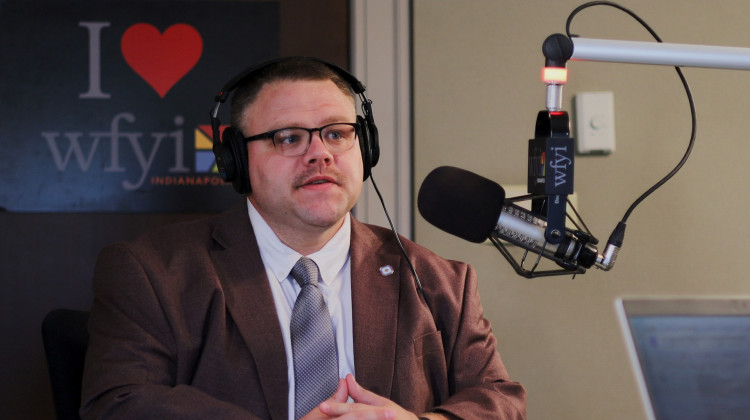INDIANAPOLIS -- Indiana will request a five year extension for when high school teachers are required to hold a master's degree and additional college credits so they can teach dual credit courses.
But now state education officials and lawmakers have to figure a way for nearly 2,000 teachers to earn and pay for these additional graduate-level courses, Indiana Commissioner for Higher Education Teresa Lubbers told members of the Dual Credit Advisory Council on Monday.
It is estimated that 71 percent of instructors teaching nearly 45,000 students in dual credit courses in liberal arts do not meet the new requirements that also include 18-credit hours in the subject area they teach.
The Higher Learning Commission, the federally backed regional accreditor for Indiana’s colleges and universities, approved the increased requirements that go into effect fall 2017. But after pushback by some states, including Indiana, the commission is allowing higher education institutions to request a deadline extension to 2022.
Lubbers said it’s now vital for Indiana’s colleges, lawmakers and other officials to work together to offer rigorous and expedited ways for high school teachers to earn additional credentials.
But she and Superintendent of Public Instruction Glenda Ritz warned that teachers need a reason to spend the extra time to return to graduate school.
It is estimated that 71 percent of instructors teaching nearly 45,000 students in dual credit courses in liberal arts do not meet the new requirements that also include 18-credit hours in the subject area they teach.
“There has to be some financial benefit to doing that,” Lubbers said. “It is back to all of the discussions about: how do you pay a master teacher?”
Changes in 2011 to the collective bargaining law reduced the amount of additional pay a teacher can earn based on their level of education. Though a corporation can chose to incentivize teachers for holding or seeking additional degrees.
Indiana Superintendent Glenda Ritz says if lawmakers don't incentivize going back to college or teaching dual credit, educators could leave the profession.
“So we do have to think about how we are going to push back a little bit and yet how we are going to solve the problems as well,” Ritz said.
During Monday’s meeting, the advisory council battered around ideas on how teachers can earn this additional credentials.
Among the suggestions: Offer a stipend for each dual credit course taught; schools or the state would pay for graduate course work; or teacher would get a pay bump for earning a master’s degree and other graduate work.
Yet discussion on extra state funding going towards teacher’s earn new degrees is unlikely to happen during the upcoming General Assembly session since it is not a budget year.
Marcus Robinson, CEO of Tindley Accelerated Schools charter operator, said the new requirements upends the career options teacher’s have previously considered.
“For years, there has been this ‘pick a path,’” he said about teacher’s returning to graduate school. “Get a masters in content area and become a department chair or get a masters in admin and become a principal.”
Now, Robinson said, teachers who are told a master’s degree is required to continuing teaching dual credit may opt decide to seek an administrative job instead of teaching.
Lubbers is hopeful the Higher Learning Commission could allow for some flexibility in teacher’s being approved to teach dual credit, such as teachers who earn awards or very high job ratings.
State Rep. Wendy McNamara R-Mount Vernon, said she will author a resolution "condemning" the Higher Learning Commission for impending Indiana as a sovereign state. Previously members of the council discussed if opting out of the Higher Learning Commission was optional. Doing so would cause Indiana to forfeit access to federal student loans and other higher education funding.
State Sen. Dennis Kruse, R-Auburn, said he would sign on to McNamara’s resolution to say that Indiana's law is higher than the commission's authority.
"That is the line. Who is in charge of our teachers, who is in charge of our students?,” he said during the meeting.
Lubbers and Ritz supported the idea of a resolution.
The council is expected to meet early next year to discuss next steps.
Contact WFYI education reporter Eric Weddle at eweddle@wfyi.org or call (317) 614-0470. Follow on Twitter: @ericweddle.
 DONATE
DONATE








 Support WFYI. We can't do it without you.
Support WFYI. We can't do it without you.